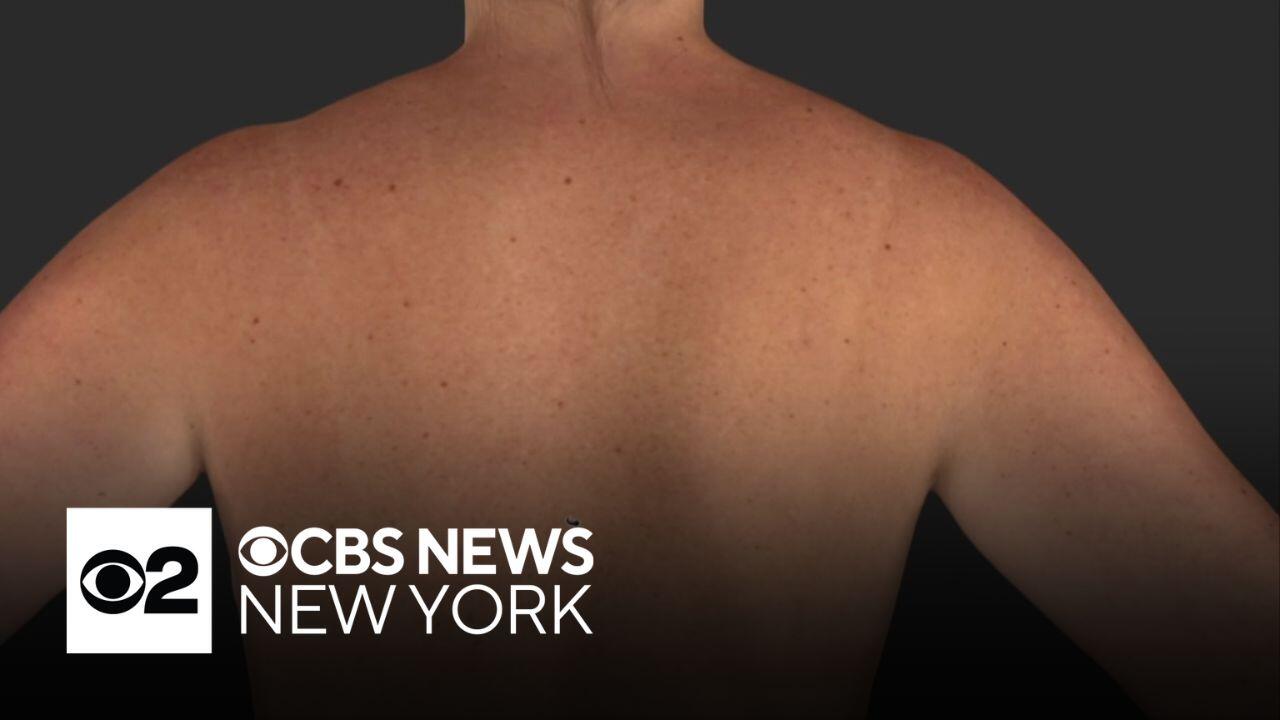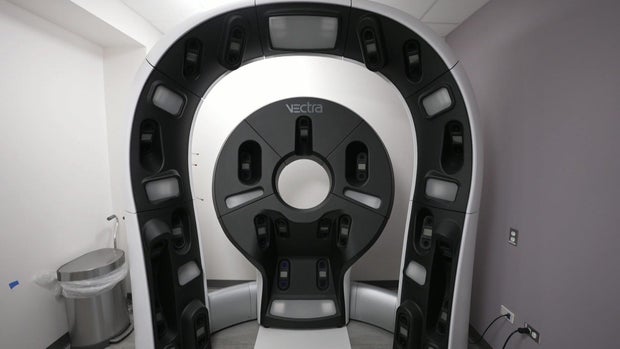Detecting, monitoring skin cancers made easier with new screening technology - CBS New York
/ CBS New York
New screening technology makes it easier to detect, track skin cancers

According to the American Cancer Society, more than 100,000 people will be diagnosed with melanoma this year. The good news is now that treatments have advanced, death rates have declined.
Diagnostic tools have also vastly improved to detect and monitor skin cancers.
Dr. Jonathan Unger, medical director of the Waldman Melanoma and Skin Cancer Center at Mount Sinai, showed CBS News New York the Vectra WB180 system.
"Basically, it is a total body photography system," Unger said. "We use 26 cameras to photograph the entire body ... And then the system takes all of these photos, high-resolution photos, and stitches them together into a three-dimensional avatar."

This is relatively new screening technology with about 100 machines across the country. Unger says it takes just a matter of seconds instead of all the time necessary to photograph each individual spot.
"Gives us a memory of every spot on the patient's body, right? Once we have a moment in time, we can always look back and say, what did this thing look like? Was it there? Was it not there? Has it been changing?" he said.
He adds accessing details of a patient's mole is much quicker, again, taking only seconds. There are additional benefits to this technology, as well.
"Decide with greater certainty and more information whether something needs to be checked, tested, biopsied, et cetera," he said. "In our practice, it's really reduced the number of biopsies because a lot of our patients have hundreds, if not more than that, moles, all of which are irregular."
He continued, "This allows us to have a higher level of confidence about what we're looking at and making a decision about."
Patient Jackie Mills has her spots scrutinized with the new machine after a scare several years ago.
"In about 2020, I noticed a spot on my face that was new and rapidly changing," she said.
But Mills says her dermatologist at that time wasn't that concerned.
"I felt like it was getting bigger, changing colors, it was more jagged, and I really had to push and advocate for myself," she said. "Just had a gut feeling that something was wrong, and I was right."
Mills was finally diagnosed with melanoma and had Mohs surgery to have the spot removed.
"I had to kind of take it in for a minute and be like, I'm going to have a scar on my face for the rest of my life," she said. "It was that or not be here."
Now she's checked every six months.
"Not only is Dr. Unger looking at my spots, but he's using this machine to mathematically track what's going on from year to year. And I think that's just, it gives me the ability to take a deep breath and enjoy my life and not be constantly worried about melanoma coming back or being an issue," Mills said.
The biggest safety tip from doctors is to use sunscreen every day. It can help prevent sunburn, premature aging and skin cancer.
Jenna DeAngelis is an Emmy award winning journalist. She joined CBS News New York as a general assignment reporter in March 2018.









